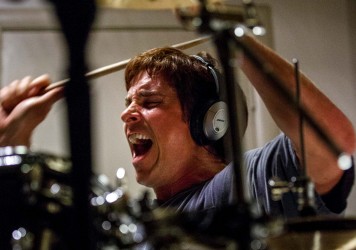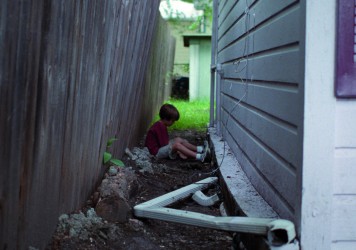This carefully considered music biopic of narcotised jazzman Chet Baker really gets its man.
Jazz trumpeter Chet Baker is a tricky subject for a movie, which is probably why it’s take so long for this one to arrive. That’s because there are, essentially, two Chet Bakers: the clean 1950s version, whose matinee idol looks and androgynous singing voice somehow exemplified carefree California cool; then the haggard wraith-like creature who dragged his junkie ass around Europe from needle to gig in the years before 1988’s fatal fall from an Amsterdam hotel window. Right to the end, his playing on a good night was truly heartbreaking on ballads, exposing a deep well of loss and longing, yet just as one can barely look upon this walking ghost without recalling his youthful beauty, somehow it’s hard now to listen to the sunlit early Chet without being aware of the shadowy path that awaited him.
All of which is an over-extended preamble to commend French-Canadian writer-director Robert Budreau for his judicious decision to set his film at the pivotal moment between these two equally iconic incarnations of Mr Chet. The action revolves around an actual incident in San Francisco in 1966 when Baker was attacked and had his teeth kicked in, a potentially career-ending crisis. Could he learn to play with dentures? Would his vocals ever be the same? We know the answer, of course, but as in all the best sporting comeback narratives, the resolution is never a foregone conclusion. Ethan Hawke, moreover, is spot-on casting in the central role, since his own boyish prime is not so far behind him while he’s now getting slightly frayed and interesting. We certainly buy him as a potentially washed-up hotshot who still has enough allure left to have the female co-star (Carmen Ejogo) of an abortive movie biopic falling right into his arms.
It will not be immediately obvious to many viewers that the aforementioned biopic or indeed Ejogo’s romantic foil never actually existed (though her performance is strong enough to make her seem pretty real). And if you compare the rest of Budreau’s story to, for instance, James Gavin’s thorough but gruellingly depressing biography Deep in a Dream, you’ll get the picture that dramatic licence has been liberally applied elsewhere, however plausible on-screen events might appear. What matters most though, is that the film gets Chet. It gets his vulnerability born of disaffected parents, it gets that gnawing sense of musical inferiority which allowed Miles Davis’s negative comments to prey on his mind, it gets the dilemma of a heroin-fuelled confidence which helped him play like a dream even at the cost of cumulative self-destruction.
For all those reasons, we can perhaps overlook Budreau’s ungainly attempts at jazz-noir cool (for that you need Bruce Weber’s mournful late-period Chet doc Lets Get Lost), and the slightly schematic way in which the dangling issue of addiction is presented. Instead, lets be grateful for a music biopic which takes you to the heart of a jazz icon’s deepest, darkest impulses. And in Hawke’s empathetic yet unvarnished performance, which convincingly sells the trumpet playing (though that’s not Baker we’re hearing) and finds a conspiratorial intimacy in vocal numbers where time stands still, we’re treated to a display of off-hand virtuosity which is somehow very, very Chet.
Published 24 Jul 2016
Ethan Hawke’s on a roll these days, and looks the part, but will the movie strike the right note?
Yes, it’s a movie which takes a few liberties, but for sound dramatic reasons.
You feel closer to Chet than you did coming in – and is this Hawke’s greatest role?

Tom Hiddleston showcases his flexibility as a performer by slipping into the boots of country troubadour Hank Williams.

Christian Bale’s mad drumming skills in The Big Short got us thinking about other memorable renditions from famous actors.

By Vadim Rizov
Ellar Coltrane grows up in public as the central, glorious spectacle in Richard Linklater's masterpiece.